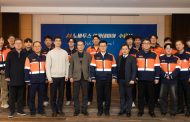A heated discussion on the future of industrial cities in the fourth industrial revolution took place in Ulsan, the industrial powerhouse of South Korea.
Organized by the Institute for the Fourth Industrial Revolution, the 2018 4th Industrial Revolution Forum in Ulsan was held in the Kyungdong Hall of Main Administration Building at UNIST from November 6 to 7, 2018. This year’s theme was “Future of Production and Workforce by Transforming Manufacturing Industrial Cities”.
The forum looked at the main challenges faced by the traditional industrial cities and seeked for solutions to overcome them. In particular, the emphasis was placed on creating more jobs through manufacturing innovation and smartization of manufacturing industry. Participants also stressed that the key to surviving the fourth industrial revolution largely depends on securing key emerging technologies driving manufacturing innovation.
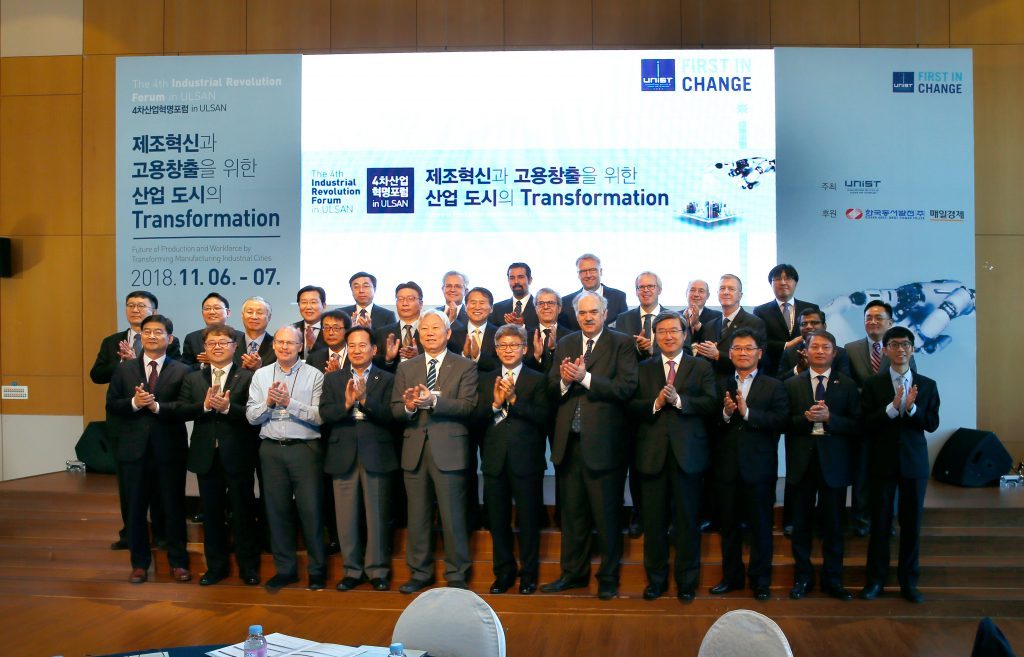
The 2018 4th Industrial Revolution Forum in Ulsan was held in the Kyungdong Hall of Main Administration Building at UNIST on November 6, 2018
“The rapid advancement of technology holds great promises for our manufacturing industry, yet has great potential to do a great deal of harm,” esponding adequately,” says Director Dong Sub Kim of Institute for the 4th Industrial Revolution. “We urgently need to accurately analyze the present condition and implement a systematic approach for the successful transformation of traditional manufacturing.”
“In this forum, we looked at the decline and resurgence of great industrial cities, such as Pittsburgh, Detroit, and Houston and this has greatly encouraged us to map out a solution for South Korean manufacturing industries,” says Director Dong Sub Kim of Institute for the 4th Industrial Revolution. “This can be a good milestone for the growth and transformation of manufacturing industrial cities in South Korea, including Ulsan.”
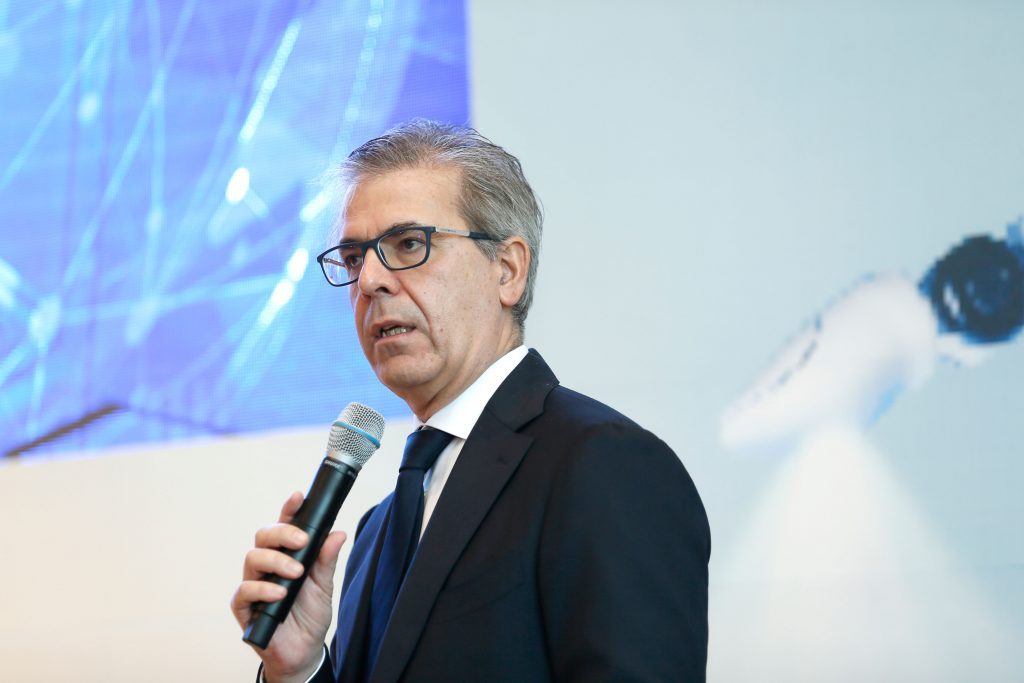
Professor Marco Taisch of Politecino di Milano is giving a plenary speech on the topic of “Innovation and Development in the Global Manufacturing Sector – Recommendations for the Future of Manufacturing”.
The forum featured a host of plenary speeches by internationally renowned guest speakers, which includes General Secretary Richard Mark Soley of Industrial Internet Consortium (IIC), WMF Scientific Chair & Professor Marco Taisch of Politecino di Milano, Director Se-ho Choi of POSCO Smart Factory, and Founding Director & Professor Sang-Kyun Cha of Big Data Institute at Seoul National University.
In the forum, the case studies of Germany and Switzerland, in which manufacturing innovation leads to job creation were also discussed. Starting with the steel city Pittsburgh, which contributed significantly to the growth of nation’s medical and computer industries through cooperation with universities, the forum also looked into Detroit’s success in fostering 3D printing, biomanufacturing, bioinformatics, nanotechnology, and industrial robotics industry based on the ‘Plan for Revitalize American Manufacturing‘.
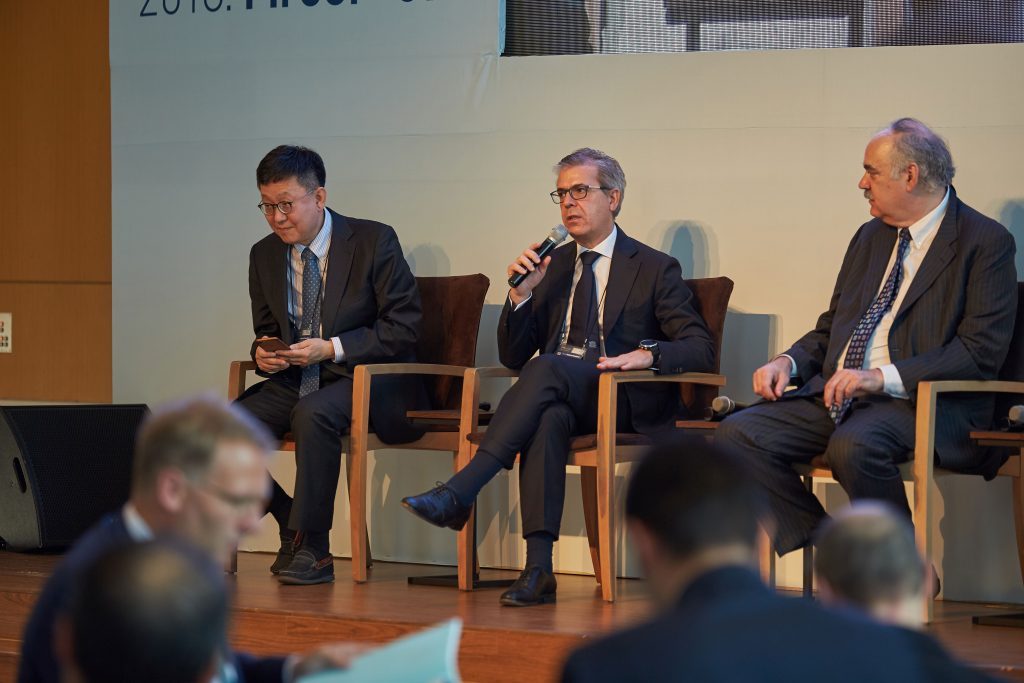
Panel discussion was also held during the course of the event. Participants had a heated discussion on the future of industrial cities.
During the session on transformation for future of workforce, the forum identified the emergence of entire categories of new, uniquely human jobs, created via human-machine communication and put a special emphasis on the implementation of work-study parallel system. It also suggested to reevaluate the university education in accordance with the changing nature of jobs.
Executive Dean Fawwaz Habbal of Harvard SEAS gave a closing session on the topic “Role of Academia Transforming Industrial Cities” and once again emphasized the role of academia for the smartization of industrial cities.
“From heavy industry to automotove sector, Ulsan is a more industrially diverse city,” says President Mooyoung Jung of Ulsan. “In order to transform industrial cities to smart industrial, we must preemptively promote new industries in the smart energy sector, which includes Big Data-driven industry, Smart Healthcare, Smart Logistics (4.0), and e+City.”
Meanwhile, the forum has been attended by 250 guests, which also includes about 50 international participants from 10 countries. Attendes of the forum also had a chance to participate in the tour of the major manufacturing industries in Ulsan and Pohang.
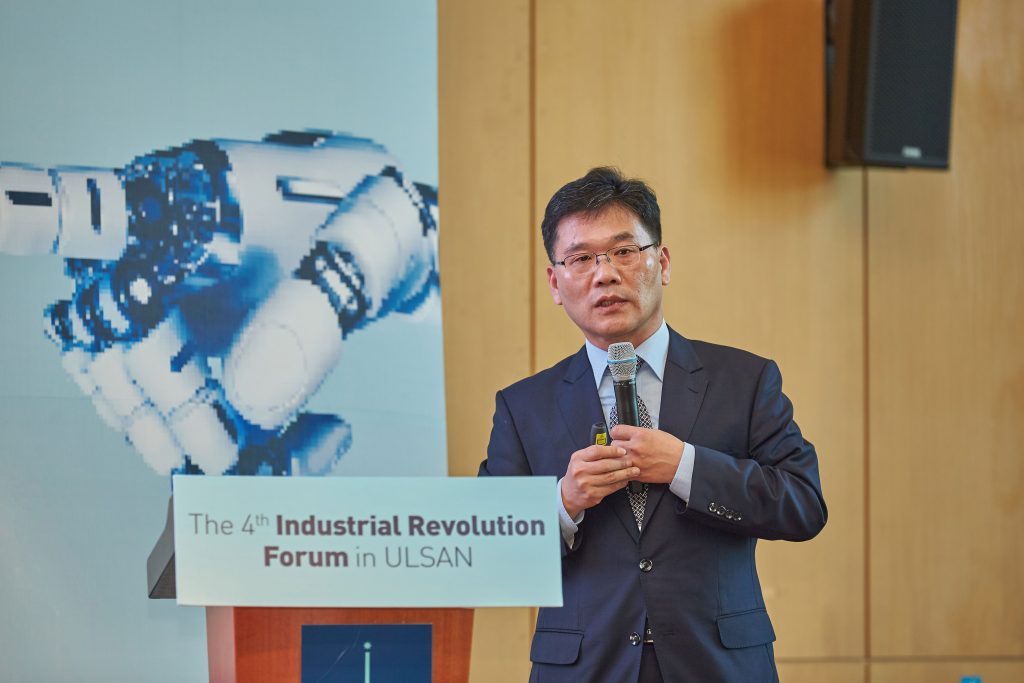
Director Se-Ho Choi (POSCO Smart Factory) is giving a plenary speech on the topic of “POSCO’s Smart Factory Strategy, AI Technology in the Steel Plant”.
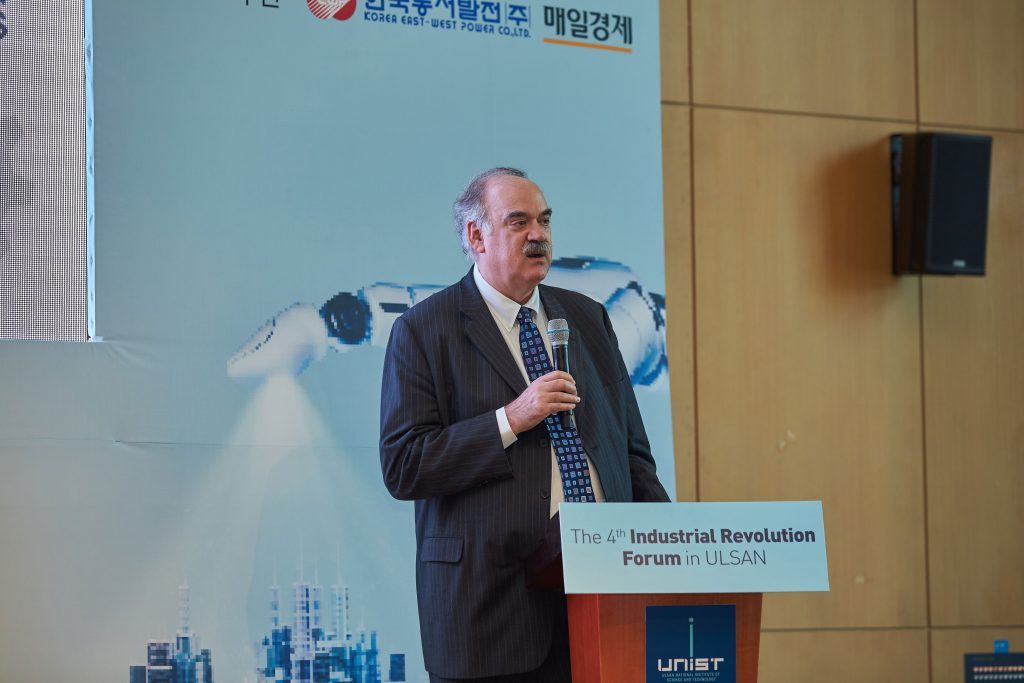
General Secretary Richard Mark Soley of IIC (Chairman & CEO, Object Management Group) is giving a plenary speech on the topic of “Learning Through Testbeds at the Industrial Internet Consortium (IIC)”.
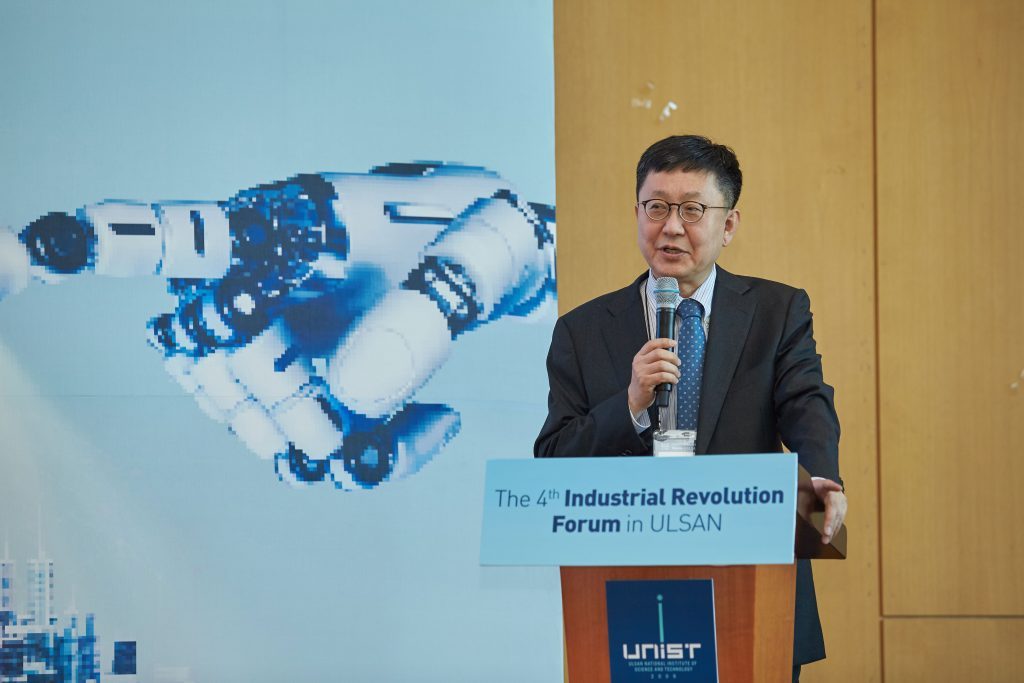
Professor Sang-Kyun Cha (Founding Director & Professor, Big Data Institute, Seoul National University) is giving a plenary speech on the topic of “Big Data and Workforce for the Future”.


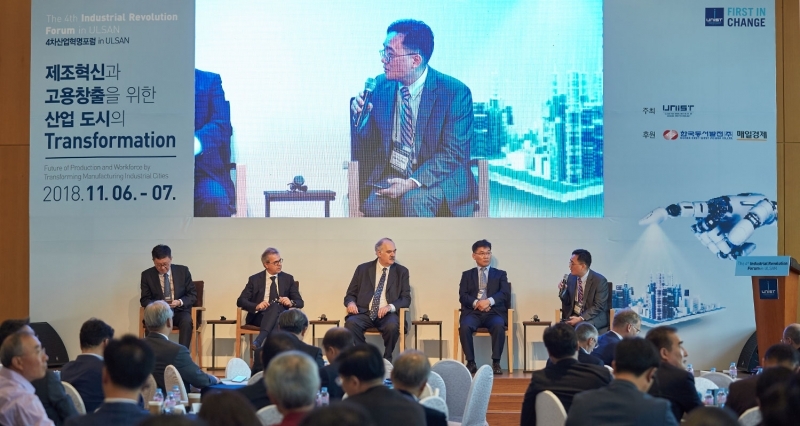









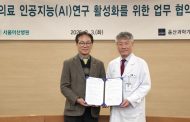
![[2026 Matriculation] UNIST Welcomes Class of 2030!](https://news.unist.ac.kr/wp-content/uploads/2026/02/사진-박종래-UNIST-총장이-2026년-입학식사를-전하고-있다-2-190x122.jpg)
![[2026 UNIST Commencement] UNIST Confers Degrees to 883 Graduates](https://news.unist.ac.kr/wp-content/uploads/2026/02/사진-2026학년도-UNIST-졸업생들이-학사모를-위로-던지며-졸업을-축하하고-있다-1-800x413-190x122.jpg)
